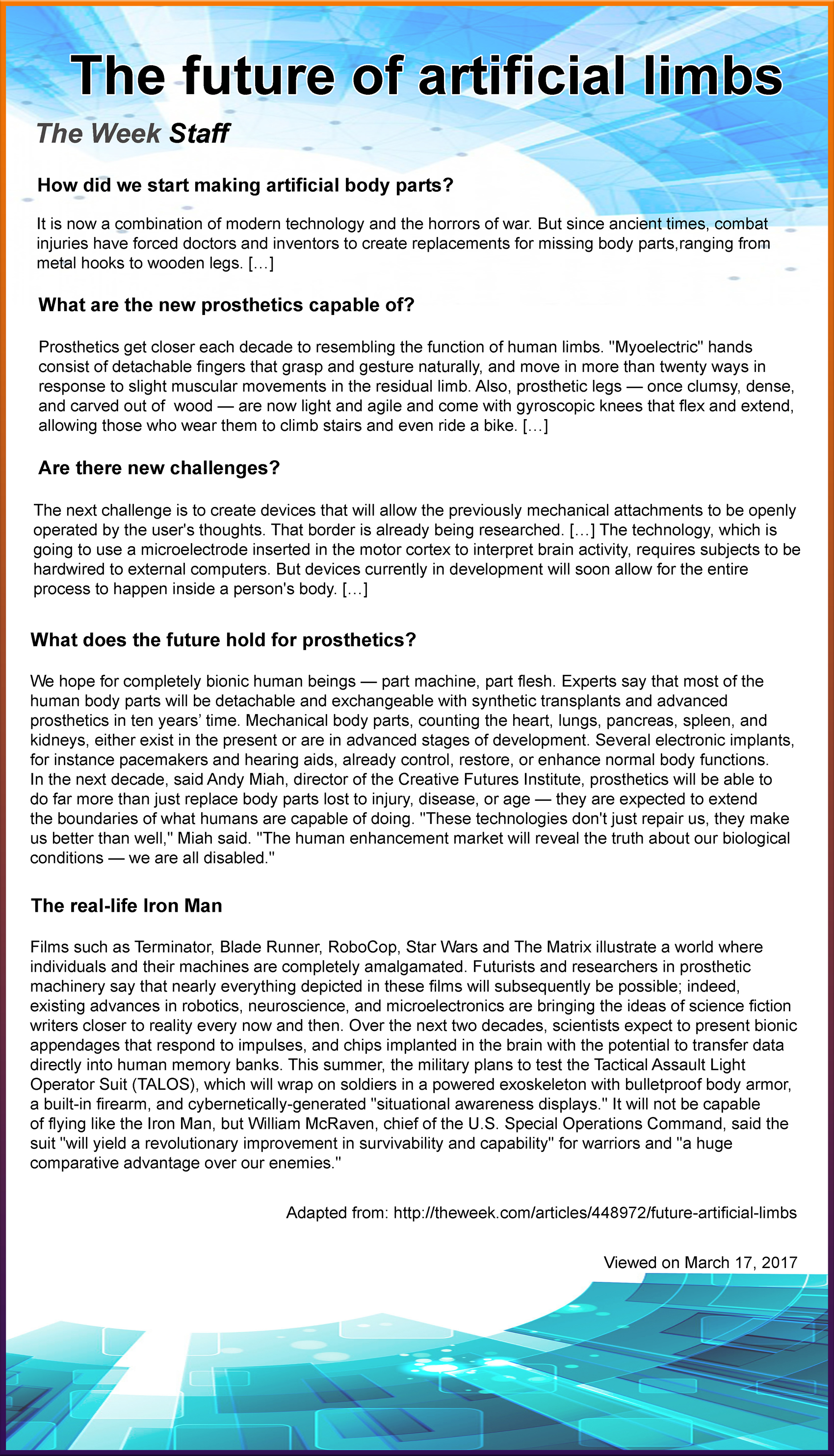Promises and when to fulfil them
Have you ever made a promise? If your answer is yes, have you set dates on your promises? Not only that, but also when you predict some event, when you make an offer, or show some intentions for the future; what kind of words or phrases do you use when referring to a particular moment in the future?

Adverbs and adverbial phrases
Adverbs are useful because they are clues on how actions are done. That is not all, but they can also modify adjectives or other adverbs. They also give details referring to time, manner, place or degree. Adverbs can consist of a word or several words (adverbial phrases) and even whole sentences.
Notice, it is crucial that you learn some adverbs and their appropriate use so that you can give more details when expressing your ideas.

By the end of this topic you will:
Use adverbs and adverbial phrases (soon, next…, tomorrow, tonight, later, etc.) to give more details when making promises, offers, predictions and expressing your intentions for the future.
Future
The future tense is used to express predictions, promises, offers, decisions and arrangements. To express future we have two basic grammar options:
e.g. I’m going to visit my grandma.

Mimirebelle. (2014). Abuela. (Photography). Retrieved from https://pixabay.com/es/abuela-amor-amistad-generaci%C3%B3n-453131/ on 27-03-2017
e.g. I will help you with your homework.

EME. (2015). Lectura. (Photography). Retrieved from https://pixabay.com/es/ni%C3%B1o-lectura-resto-silencio-700739/ on 27-03-2017
The previous sentences are clear without adverbs, but we can make them better by adding more details:
Next summer (adverbial phrase) and tomorrow (adverb) are words that give the listener a clue about when the action is taking place. They make these ideas more precise, and more transparent.
Let’s see if it is clear now.
Ready for some practice?
Now that you have studied the use of adverbs for future tenses, you can make promises, give offers, make arrangements, etc. Let’s put them to the test!
Activity 1
As you read before, adverbs give details about when actions occur. Modifiers for the future are included in the following extract. Read the excerpt and try to get the general idea of each paragraph before you work on the exercise.
Read the extract, analyse, and then complete the sentences according to the ideas explained in the text.

Clickon the activity button to go to the exercise based on the extract adapted from www.theweek.com ‘The Future of Artificial Limbs’.
Activity 2
Besides studying adverbs and adverbial phrases for the future, we have explored how predictions based on evidence work.
Now listen to the following predictions. Pay attention to the use of adverbs.
Identify and choose the correct adverb or adverbial phrase that tells when they are expected to happen.
Follow the explanations and examples we have studied to solve the exercise.
Click on "activity" to go to the exercise. Then pick and place the adverbs from the left column onto the text. Drag the different options to the appropriate spaces to complete the sentences. You have only one attempt per exercise. You can know your score at the end of the task.

Your score will depend on your answers to the exercise.
Activity 3
Now that you can identify and know how to use adverbs for the future, using them to make offers to help people in need. Read the following sentences. Choose a modifier from the box for each one and write a solution for each situation to improve the lives of people.
If you need help, check the use and the examples of these adverbs. Your score will depend on your choices for helping others. After you finish, you can access yourself using and the rubrics.
Activity 4
For you to achieve full development of your skills, we suggest you practice your oral production. Read the following statements (questions or favours) and create an answer to each of them.
Record your answers to the statements with a promise you want to fulfil. Say when you plan to fill each and use the verbs in brackets.
Click here to go to the statements. Once there, push the record button and record yourself making promises.
Click here to listen to the following example.
You have studied adverbs and adverbial phrases to talk about the future. Now you are capable of expressing your ideas and predictions for the future… or are you? Well, let’s put it to the test.
Order the words so that they make correct sentences. Use all the words provided. You will know how well you performed as soon as you finish.
AARTS, B. (2011) Oxford Modern English Grammar. New York, USA: Oxford University Press.
The Staff https://theweek.com/articles/448972/future-artificial-limbs.Retrieved on 12-july-2017
AZAR, B. & HAGEN, S. (2009) Understanding and Using English Grammar 4th Edition. New York USA: Pearson Education.
MURPHY, R. (2005) English Grammar in Use 3rd Edition. Cambridge, England: Cambridge University Press.
Redman, S. (2004) English Vocabulary in Use. Cambridge, England: Cambridge University Press.
SOARS, J. & SOARS, L. (2003) New Headway Intermediate. New York, USA: Oxford University Press.